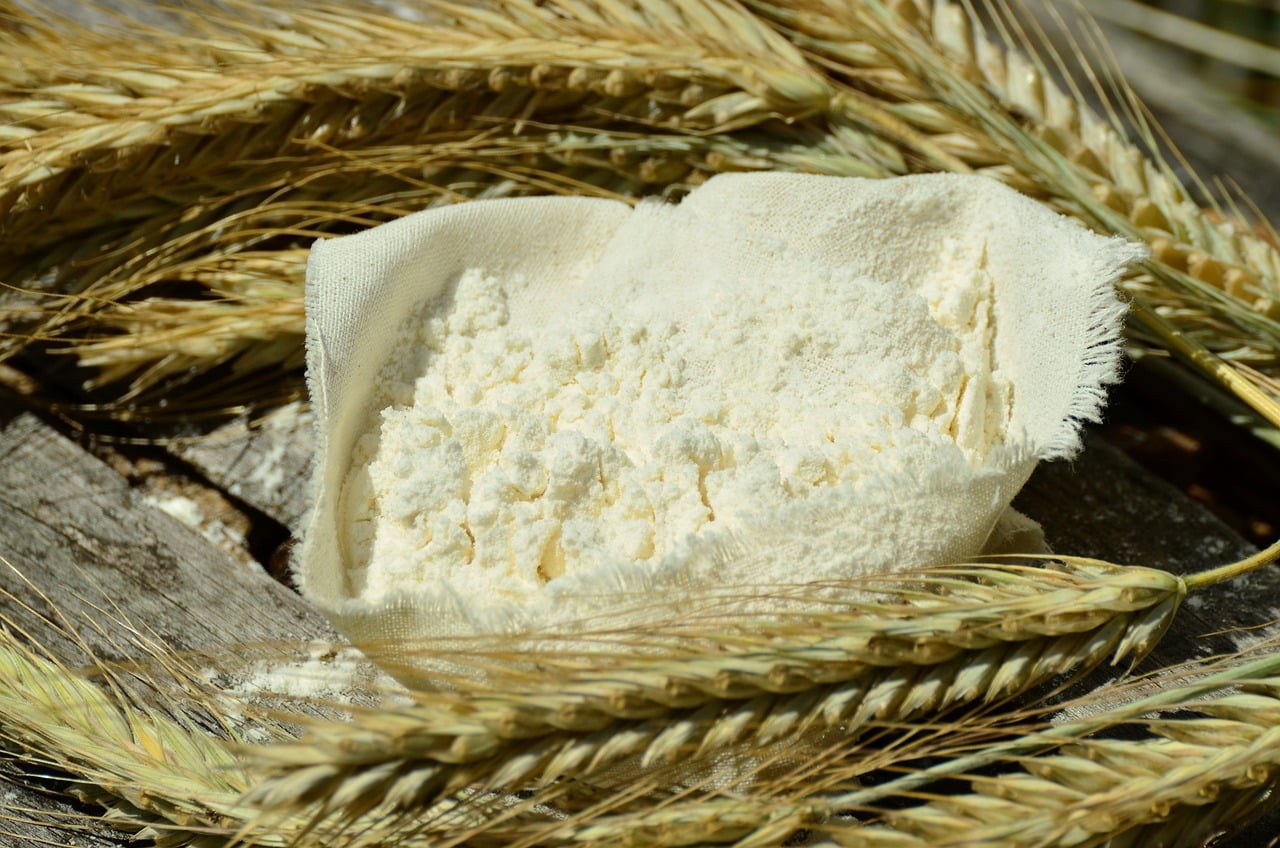Corn flour is a useful ingredient to have on hand in the kitchen, and it can be used as a coating for fried foods such as chicken or fish, but we can also use it to make quick bread or waffles. Corn flour has a lot of uses, so it’s no surprise that it’s a popular ingredient. However, this does not imply that everyone has it in their kitchen. If your recipe calls for corn flour but doesn’t have any on hand, you’ll need to come up with a quick solution!
Corn flour is a useful ingredient to have on hand, but it isn’t required. Depending on the recipe, you can easily substitute corn flour for other great ingredients.
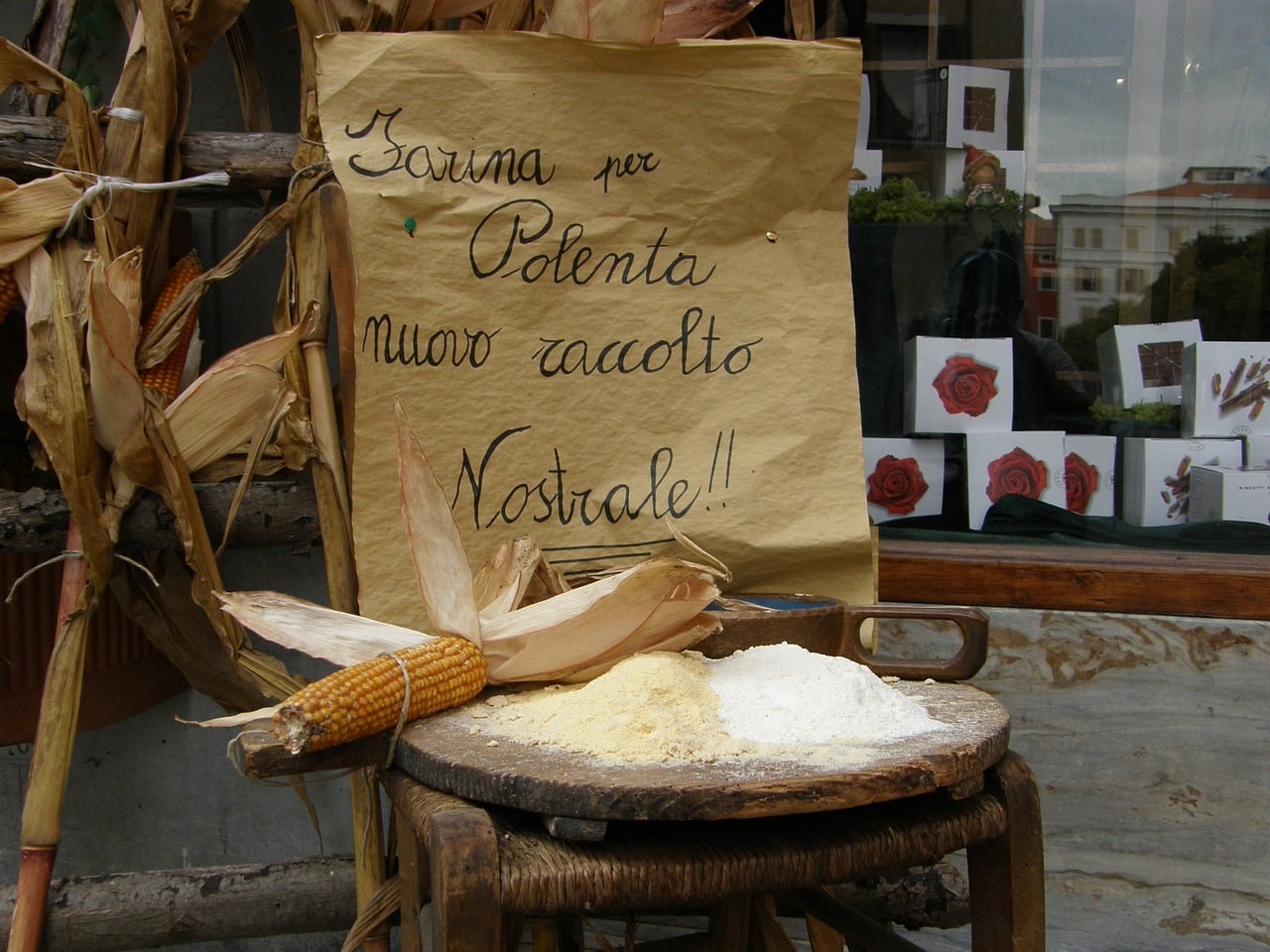
With our comprehensive list of all the best cornflour substitutes you can use in any recipe, finding a cornflour substitute is simple! This staple ingredient has readily available substitutions you can make on the fly, from breading, battering, and deep frying to baking fabulous biscuits, cornbread, and more!
Cornflour substitutes that you already have in your pantry are the best!
Soups and sauces benefit from thickeners like arrowroot and kudzu starch. Breading and coating flours, as well as cornmeal, can be used to make baked goods. They’re also great because these are pantry staples!
We keep tapioca flour and arrowroot powder on hand, and you’ll enjoy them.
I always believe that the best substitutes are whatever you have on hand, so go through your pantry and see what works best in your recipe. Let’s get this party started!
Here are best corn flour substitutes
The best corn flour substitutes are listed below, and they all work great.
1. Cornstarch
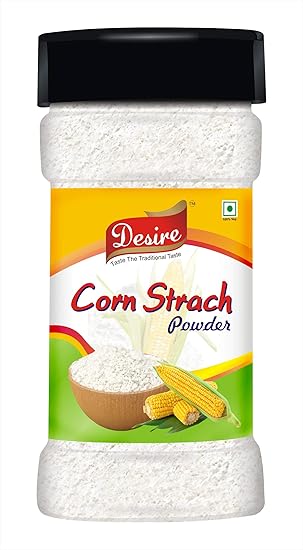
Corn flour conjures up images of cornstarch in most people’s minds. Although they are very similar, they are not the same thing.
However, this does not rule out cornstarch as a viable substitute. Cornstarch, which has the same consistency as corn flour, can be used in place of corn flour.
However, it lacks flavor, so We should consider seasoning before using cornstarch instead of cornflour.
When replacing corn flour with cornstarch, use a 1:1 ratio. However, depending on the recipe, you may still need to mix your cornstarch with cold water.
It works best as a thickener, breading, or fried batter. Baked goods will be crumbly if this is used as a substitute.
Cornstrach vs cornflour
Corn flour is a finely ground powder made from the corn kernel, whereas cornstarch is made solely from the kernel’s starch. Corn flour, on the other hand, contains protein, fiber, and other nutrients that cornstarch does not.
2. Rice flour
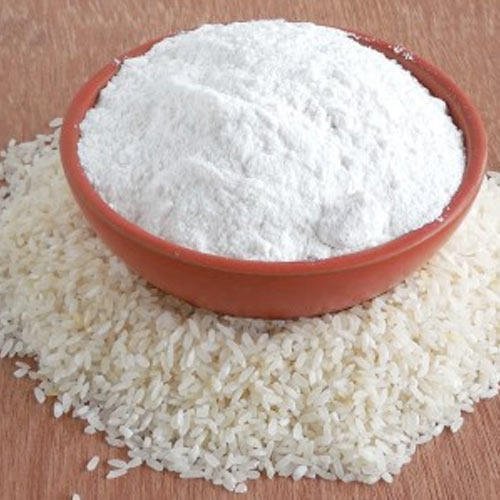
Rice flour is a great cornmeal substitute, especially when used as a thickening agent or in sweet baked goods. Because rice flour is stickier and finer than cornmeal, We should not use it in recipes that call for a crunchy exterior.
Rice flour is a wonderful flavor enhancer in certain recipes, such as soups or muffins, due to its sweetness.
Use twice as much rice flour as cornflour in a 2:1 ratio.
It’s best used in baked goods and as a thickening agent.
3. Cornmeal

When it comes to corn flour replacements, it’s no secret that using another corn-related product may suffice. Using cornmeal (or maize flour), you can get the same flavor profile as corn flour by using cornmeal (or maize flour).
The most noticeable difference when using cornmeal is the coarser texture. This is great for fried foods, casserole toppings, macaroni and cheese, and more.
You can food process cornmeal to achieve a finer cornmeal consistency that is closer to that of cornflour.
We can use cornmeal in place of cornflour in a 1:1 ratio.
4. All-purpose flour and whole wheat flour

Whole wheat flour and all-purpose flour are both good substitutes for cornmeal. Remember that these flours are not gluten-free, so they may not be suitable for all bakers and home chefs.
This is the most common corn flour substitute because most people have all-purpose or white flour. Whole wheat is also popular because it contains more nutrients than white wheat.
White flour does not affect the flavor or texture of the recipe. However, whole wheat flour can impart a malty flavor to your dishes. While it isn’t an unpleasant flavor, it may not be appropriate for the flavor profile you’re looking for.
In a 2:1 ratio, or twice as much as the amount of cornflour called for in a recipe, combine whole wheat flour and all-purpose flour.
5. Self-rising flour
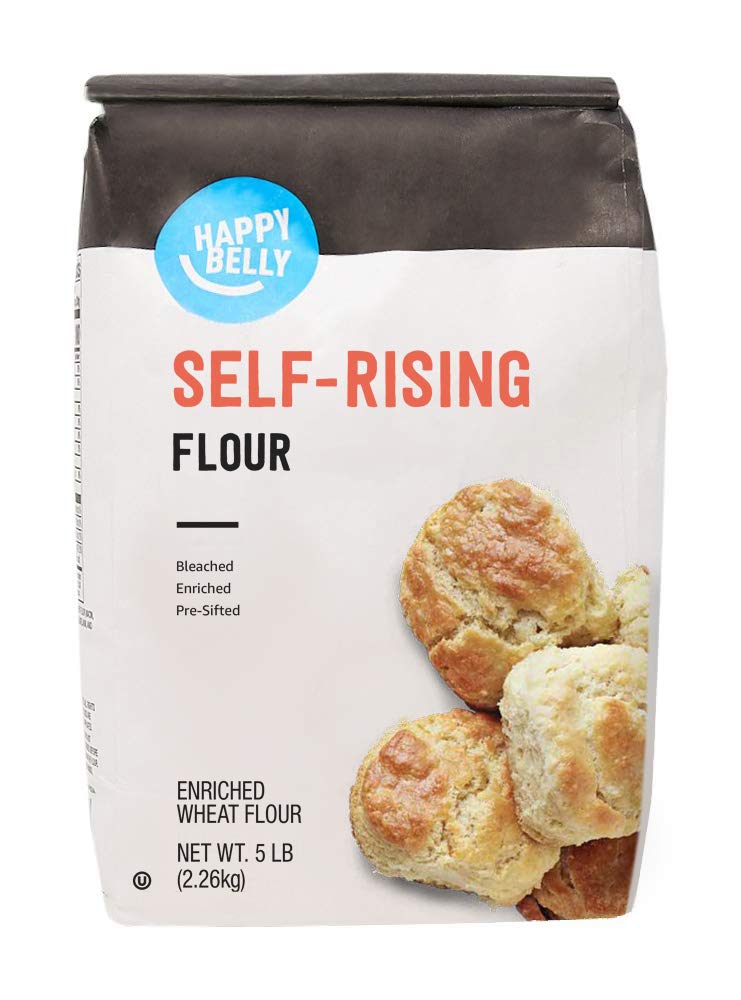
In a pinch, I like to use self-rising flour (also known as self-raising flour). It’s just all-purpose flour with baking powder and salt to make it ready to bake!
To thicken soups, sauces, pie fillings, and other dishes with self-rising flour instead of cornflour, double the amount of self-rising flour. Use self-rising flour in a 1:1 ratio for breading fried foods.
Although the amount of salt in most recipes is negligible, you may want to reduce the amount of salt in your recipe. After the flavors have melded, adjust the seasoning to taste.
6. Tapioca flour

Tapioca flour has a wide range of applications. When a recipe calls for a thickening agent, it can be a great substitute for corn flour if you have some on hand.
This suggestion isn’t ideal for breading or baking, unfortunately. Unless you’re thickening with tapioca flour, it’s best to go with another option.
For thickening purposes, use equal parts tapioca flour and cornflour.
7. Masa harina

Masa Harina is a type of cornmeal that is popular in Mexico and Latin America. Masa Harina is made from organic corn that has been cooked, soaked in lime juice and water, then hulled and ground into a cornmeal consistency.
However, it’s a great corn flour substitute, especially if your recipe has a Mexican or Latin flair.
I usually replace cornflour with masa harina in a 1:1 ratio, but depending on the recipe, you may need to experiment.
8. Rice, potato, tapioca, or kuzu starch

You can’t go wrong with starches if you’re looking for a corn flour substitute. You can replace corn flour with rice, potato, yuzu, or tapioca starch if you don’t have any.
Remember that starches are best used as thickening agents in recipes such as soups and sauces. Because potato starch tends to clump quickly, ensure you’re whisking quickly when adding it to your ingredients.
Kuzu is the way for those looking to add more unprocessed organic foods to their diet. Kuzu (Kudzu) is a versatile herb with numerous uses, and it is thought to help with liver damage, heart health, and inflammation reduction.
We can use each cornflour substitute in a 1:1 ratio to replace the required cornflour.
9. Guar gum

Another healthy and inexpensive thickening option is guar gum. When replacing corn flour in a sauce or soup recipe, only a small amount of guar gum is required. You’ll also benefit from the digestive properties of guar gum.
To replace cornflour in any recipe, you’ll need a much smaller amount of guar gum. Start with 1/8 of a tablespoon (1/8th of a teaspoon = 3/8th of a teaspoon) of cornflour.
10. Sorghum flour
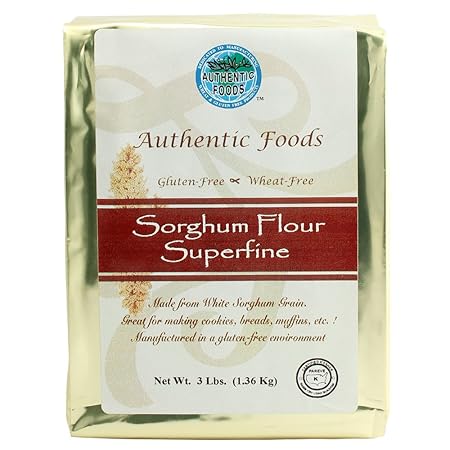
Sorghum flour is gaining a lot of traction, especially among health foodies. This flour, made from sorghum grains, contains protein and antioxidants.
It also contains important vitamins and minerals, such as magnesium, phosphorus, and B vitamins. It’s best to use sorghum flour as a thickening agent rather than a breading or coating agent.
We can use sorghum flour in place of cornflour in a 1:1 ratio.
11. Ground flaxseed

Flaxseed is a great option if you’re looking for a nutrient-dense corn flour substitute. Because the flavor is a little more bitter, you may want to increase the amount of flavoring in your recipe.
To replace one tablespoon of cornflour, combine 12 tablespoons of ground flaxseed with two tablespoons of water.
12. Arrowroot powder

Another popular starch that We can substitute for corn flour is arrowroot. It can also help your recipe’s flavor profile, making it one of the best go-to options.
Because arrowroot is a starch, it’s a good thickening option, but it might not work as well in baked goods or as a coating. Use as a substitute in soups and sauces that We will serve right away.
In a 1:1 ratio, substitute for cornflour.
13. White rice flour

If cornflour isn’t available, We can substitute white rice flour. Because of its high starch content, it works well as a thickener, similar to cornflour. Just keep in mind that it costs a little more than corn flour. Some cooks claim that white rice flour is easier to work with than corn flour, though you’ll need to use less liquid and more rice flour in a white rice flour recipe than you would in a corn flour recipe. In a recipe, you’ll use two tablespoons of white rice flour for every tablespoon of corn flour.
14. Cassava flour

Cassava flour, like tapioca flour, is milled directly from the cassava root. The difference between cassava flour and cassava starch is that cassava flour uses the entire cassava root, whereas cassava starch only uses the starchy parts. When used as a substitute for tapioca, Cassava flour thickens slightly more than tapioca and comes from a very fine white powder.
15. Brown rice flour

In most recipes, brown rice flour can be used as a substitute for cornflour. It has a similar texture to cornflour and can be used in the same proportions (for every tablespoon of cornflour called for, use one tablespoon of rice flour). It also helps to preserve the vitamins and minerals found in brown rice.
16. Potato flour

Potato flour, also known as potato starch, is a fine powder similar to tapioca starch, providing the same starch and thickening agent as cornflour. However, remember that potato flour has a thicker consistency during the cooking process than corn flour. In a pinch, it’s a good stand-in.
Is it okay if I use regular flour instead of corn flour?
Yes, you can substitute plain flour for corn flour. Plain flour will be one of the best choices for all kinds of recipes. It can be used as a frying oil coating, a slurry thickener, and in baked goods like bread and muffins.
What’s the difference between corn flour and corn meal?
Many people mistakenly believe corn flour and cornstarch are the same things and have similar profiles, but corn flour is made from the entire kernel, whereas cornstarch is made from the starchy part.
What can I use instead of cornflour to thicken?
In place of corn flour, various thickening agents can be used. Thickening agents such as white flour, rice flour, cornstarch, tapioca flour, guar gum, and sorghum flour are excellent choices. More are listed above, along with how and when to use them.
Is cornflour the same as regular flour?
No, even though they are used in similar ways. Corn flour is made exclusively from whole corn kernels. Plain flour, also known as all-purpose white flour, is made from grain milled and processed wheat.
Is there a way to thicken a sauce without using cornstarch?
Cornstarch isn’t used to thicken sauces or anything else for that matter, and it’s just one of many thickening agents available, and any alternatives listed in the article will suffice. Just keep an eye out for their distinct characteristics!
In cookies, what can I use instead of cornstarch?
Some of the suggestions in this article apply to cookies. Try tapioca flour, arrowroot flour, or sorghum flour if you’re looking for gluten-free alternatives.
Conclusion
That concludes the discussion. We hope this article clarified your cornflour concerns, and we hope that these substitutes will come in handy the next time you run out of cornflour. However, there are times when we run out of cornflour, and what can we do about it? It’s comforting to know that there are good corn flour substitutes on the market to come to the rescue. Cornstarch, rice flour, wheat flour, potato flour, all-purpose flour, or a combination above are the best corn flour substitutes.
